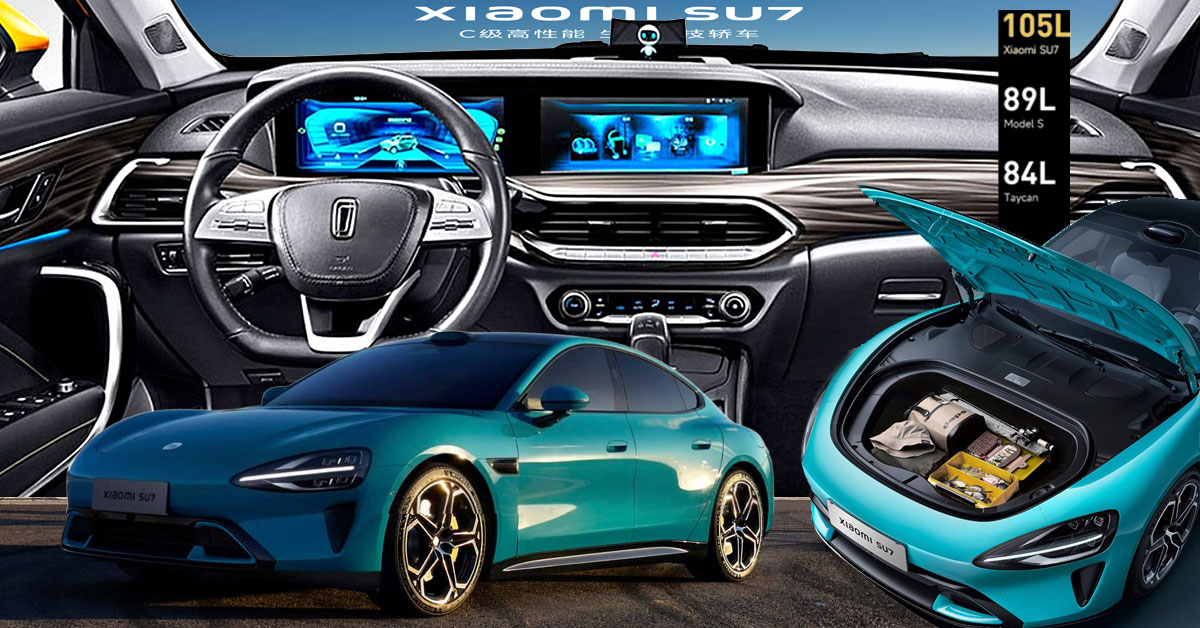Market Value Soars by $4B as Xiaomi enters the EV Market

BEIJING, April 2 (Reuters) – Xiaomi (1810.HK), a prominent player in the electronics industry, witnessed a remarkable surge in its shares by up to 16% on Tuesday following the recent launch of its sleek electric vehicle, despite forecasts from a brokerage indicating potential losses per car. The company’s stock reached its highest point since January 2022, experiencing a surge in value that added $4 billion to its market capitalization.
The debut of Xiaomi’s first-ever electric car, drawing design inspiration from Porsche, ignited significant investor interest, with the stock eventually closing 9% higher after the initial excitement. At its peak during the day, Xiaomi’s market valuation soared to $55 billion, surpassing that of traditional American automakers General Motors (GM.N) and Ford (F.N), valued at $52 billion and $53 billion, respectively. Xiaomi’s entry into the crowded Chinese EV market with its SU7, or Speed Ultra 7, garnered attention primarily due to its competitive pricing, starting below $30,000 for the base model, making it cheaper than Tesla’s Model 3 in China. Despite the fierce competition and a challenging market environment characterized by pricing pressures and slowing demand in the world’s largest auto market, analysts believe Xiaomi possesses advantages over many EV startups, including substantial financial resources and expertise in smartphone technology, which could prove beneficial in developing smart dashboards, a feature highly valued by Chinese consumers.
The overwhelming response to Xiaomi’s sedan was evidenced by the substantial pre-order figures, with the company receiving 88,898 orders within the first 24 hours of sales, leading to anticipated wait times of four to seven months for potential buyers. Founder and CEO Lei Jun took to social media to announce the commencement of deliveries for the initial batch of SU7 vehicles, dubbed the “Founder’s Edition,” which comes with additional accessories for early adopters. This milestone marks the realization of Lei’s vision, declared in 2021, of Xiaomi venturing into the EV market, with an ambitious investment pledge of $10 billion, positioning it as “the last major entrepreneurship project” of his career.
Despite the excitement surrounding the SU7 launch, analysts remain cautious about its profitability prospects, with some predicting significant losses, particularly within the competitive pricing segment. Citigroup Research forecasts a potential net loss of 4.1 billion yuan ($566.82 million) based on projected sales volumes, averaging around 68,000 yuan ($9,400.96) per car. The entry of Xiaomi into the EV arena has prompted reactions from other Chinese EV manufacturers, with announcements of price adjustments and subsidies to stay competitive. Analysts anticipate intensified competition in the 200,000 to 300,000 yuan segment, with an increase in the number of EV models vying for market share.
Responding to surging demand, Xiaomi has reportedly urged suppliers to ramp up production capacity for the SU7 to 10,000 units per month, indicating the company’s commitment to meeting consumer demand in the evolving EV market landscape. As of reporting, Xiaomi has not provided any immediate comments on the developments. ($1 = 7.2333 Chinese yuan renminbi)

